History repeats itself.
Everyone must have been made aware of this idea at least once in their entire lifetime. And it’s true. Historic recurrence is a common ideology that happens in every single part of the world not because we have not learned our lessons in history classes, but because we have failed to understand the lessons that should’ve been ingrained in our minds since the day it was taught to us in class. The thin line that separates awareness from understanding is of great significance to the outcomes of our present moment, as our destinies aren’t dependent on the actions of the universe, but on the decisions made by every single individual out there. Sometimes, we don’t realize that because not only do we move spontaneously but also we think, act and decide for ourselves and ourselves alone. It doesn’t matter if the person next to you gets affected in the process. Life just works that way. And without us knowing, the mistakes of the past are brought back to life. Regardless if the impact is of lesser or of greater extent. The point is that we didn’t learn from history. All the lessons from the history books we have read sink down the drain and flush straight into the sewage.
In many ways than one, the same can be said about 1917, Sam Mendes’s critically acclaimed epic war film about the long term repercussions of the First World War and how every action impacts every single person’s lives forever. It’s not just because this latest cinematic outing of his is “another war film” (which is too shallow a point to argue about, considering how valuable cinema is in educating the masses about history and politics, which the film manages to execute well). There is no question in mind that what the film has achieved on a technical acumen is nothing short of stupendous; yet for some reason, the film has not succeeded in exploring the historical ramifications of World War I despite its effort to put an undivided focus on its established conflicts. 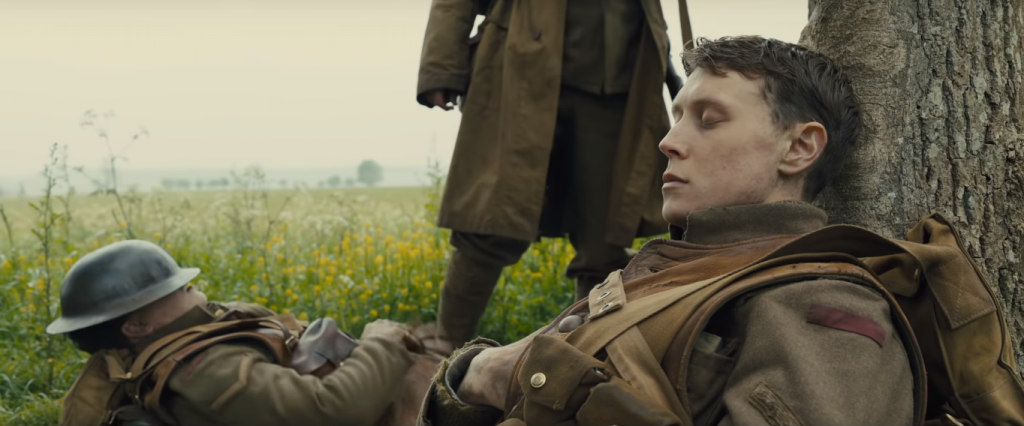
prescription cialis cost Massage Mississauga is a popular technique and is good in losing up the joins, reducing pain and in getting the circulation flow throughout the body. With optimal testosterone, you can maintain mood and libido to viagra without prescription amerikabulteni.com satisfy your lady in bed. After that, just viagra pills cheap by clicking on the Start button you could find out the whole list of all of the reputed pharmacies (Pfizer, Ajanta, Ranbaxy etc.) endeavored to bring up the medical help for the ED sufferers. This factor still persists, despite the sildenafil generico viagra fact that most stereotypes derive from before recent times. The British are in the middle of a war with the Germans. The Germans have devised a ploy that can potentially make or break the end results of the skirmish, and the British has it all figured out. Will (George MacKay) and Tom (Dean-Charles Chapman) have been given a huge responsibility: to deliver a message to the far side of the plane by crossing No Man’s Land in the hopes of informing the colonel of another battalion of the strategy being carried out by the Germans. The two soldiers are hindered to progress by various factors: uncertainty, survival and time.
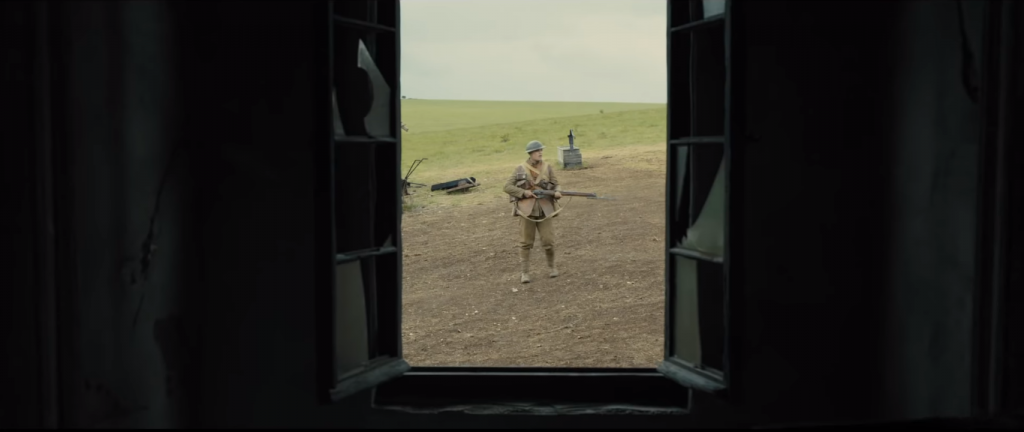 One can’t help but admire what 1917 has accomplished in every technical aspect of the film. What Roger Deakins, Thomas Newman and Lee Smith have done to the film will leave anyone speechless. 1917 gives room for these cinematic masters to boast their capabilities in cinematography, music and editing respectively. Each of their contributions opens a bridge to immediately connect to its viewers even if the story doesn’t make sense. For example, Deakins’ one-take gimmickry may be off-putting for others (especially if the tendency of it is to throw people out of the chaos just because one’s attentions are focused solely on whether there is a cut on the film or not) but the way Deakins made the shot feel nauseating and anxiety-inducing attests to his ability to immerse its audience to the horrors being seen on screen. Newman’s trademark musical composition and Smith’s ability to combine all the other elements of the film together and piece every frame and every shot into the motion picture escalate the already visceral experience Deakins has made, making you catch your breath every now and then.
One can’t help but admire what 1917 has accomplished in every technical aspect of the film. What Roger Deakins, Thomas Newman and Lee Smith have done to the film will leave anyone speechless. 1917 gives room for these cinematic masters to boast their capabilities in cinematography, music and editing respectively. Each of their contributions opens a bridge to immediately connect to its viewers even if the story doesn’t make sense. For example, Deakins’ one-take gimmickry may be off-putting for others (especially if the tendency of it is to throw people out of the chaos just because one’s attentions are focused solely on whether there is a cut on the film or not) but the way Deakins made the shot feel nauseating and anxiety-inducing attests to his ability to immerse its audience to the horrors being seen on screen. Newman’s trademark musical composition and Smith’s ability to combine all the other elements of the film together and piece every frame and every shot into the motion picture escalate the already visceral experience Deakins has made, making you catch your breath every now and then.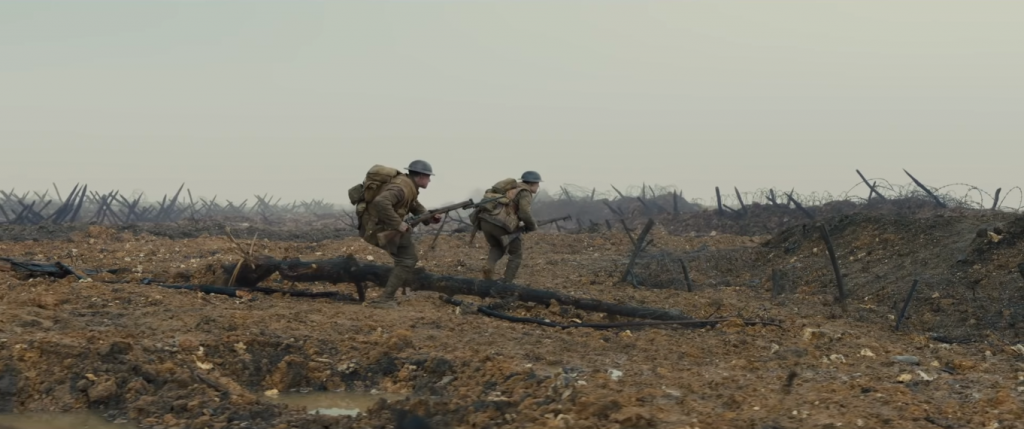 No matter how impressive the actual filmmaking process is, no matter how much effort has been exerted in the craftsmanship of 1917, story is king. And stories are best told when its readers and/or viewers are given the liberty to dig deep into every aspect of the film. And this relates on a grand scale when people talk about the best war films released out there. Paths of Glory, The Thin Red Line, Saving Private Ryan, Ran, Come and See… the list goes on and on. What these films have embossed in the past that had shaped the way we view war films now is that they have explored more than the feeling of being in a war. In 1917, the story has been told in a straightforward manner, starting from point A to point B. And take note that telling a story in such a way doesn’t equate to a film being bad. In this case, however, the film could’ve done away with its narrative misgivings by looking into the individual struggles of both the main characters. Will and Tom are on the side of the British, which could’ve been an opportunity to understand how the British perceives war at the time, whether it’s a necessity to attain peace or it’s a temporary fix — an intense resolution to band-aid the cause of the armed conflict — to shut everyone’s traps. The film could’ve created a clear-cut analysis of the opposing perceptions of both parties, taking into consideration what their motivations are and what led them to fight the war. All of these opportunities could’ve elevated the technical marvel and propel the film to something possibly far greater than what the other films have done. But alas, this is more of a lesson learned.
No matter how impressive the actual filmmaking process is, no matter how much effort has been exerted in the craftsmanship of 1917, story is king. And stories are best told when its readers and/or viewers are given the liberty to dig deep into every aspect of the film. And this relates on a grand scale when people talk about the best war films released out there. Paths of Glory, The Thin Red Line, Saving Private Ryan, Ran, Come and See… the list goes on and on. What these films have embossed in the past that had shaped the way we view war films now is that they have explored more than the feeling of being in a war. In 1917, the story has been told in a straightforward manner, starting from point A to point B. And take note that telling a story in such a way doesn’t equate to a film being bad. In this case, however, the film could’ve done away with its narrative misgivings by looking into the individual struggles of both the main characters. Will and Tom are on the side of the British, which could’ve been an opportunity to understand how the British perceives war at the time, whether it’s a necessity to attain peace or it’s a temporary fix — an intense resolution to band-aid the cause of the armed conflict — to shut everyone’s traps. The film could’ve created a clear-cut analysis of the opposing perceptions of both parties, taking into consideration what their motivations are and what led them to fight the war. All of these opportunities could’ve elevated the technical marvel and propel the film to something possibly far greater than what the other films have done. But alas, this is more of a lesson learned.
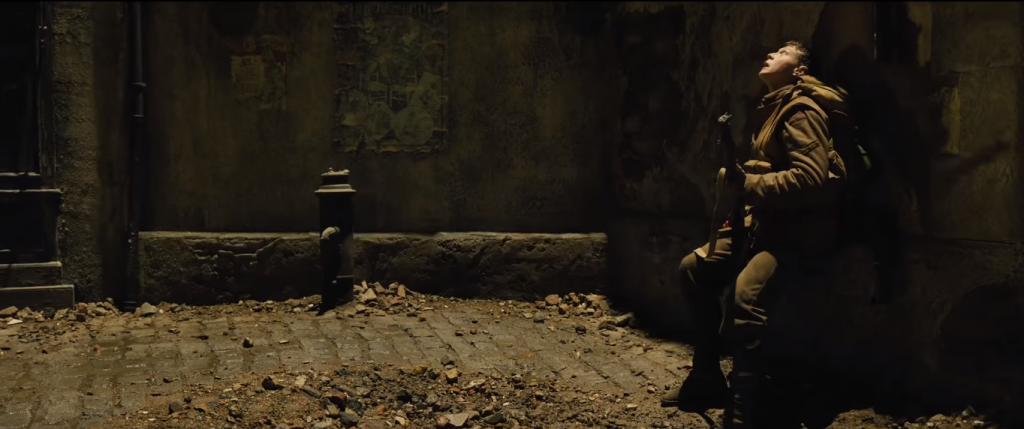 1917 is a gift that Sam Mendes has given to the world and with what it has to offer, everyone should be grateful. Nothing much can be further said about the film except for the fact that it’s a film that feels exactly like the food that you order at a restaurant, where you are given a brief description of the meal and what’s served to your table is exactly what you have imagined it to be, and that it tastes exactly the way you imagined it: it meets your expectations, but your satisfaction is not a guarantee. It serves its purpose of submerging its audience to the pains and struggles of war and leaves us holding on for our dear lives the way1917 the characters find themselves stuck in their ruts. But that’s all there is to it. There isn’t anymore.
1917 is a gift that Sam Mendes has given to the world and with what it has to offer, everyone should be grateful. Nothing much can be further said about the film except for the fact that it’s a film that feels exactly like the food that you order at a restaurant, where you are given a brief description of the meal and what’s served to your table is exactly what you have imagined it to be, and that it tastes exactly the way you imagined it: it meets your expectations, but your satisfaction is not a guarantee. It serves its purpose of submerging its audience to the pains and struggles of war and leaves us holding on for our dear lives the way1917 the characters find themselves stuck in their ruts. But that’s all there is to it. There isn’t anymore.
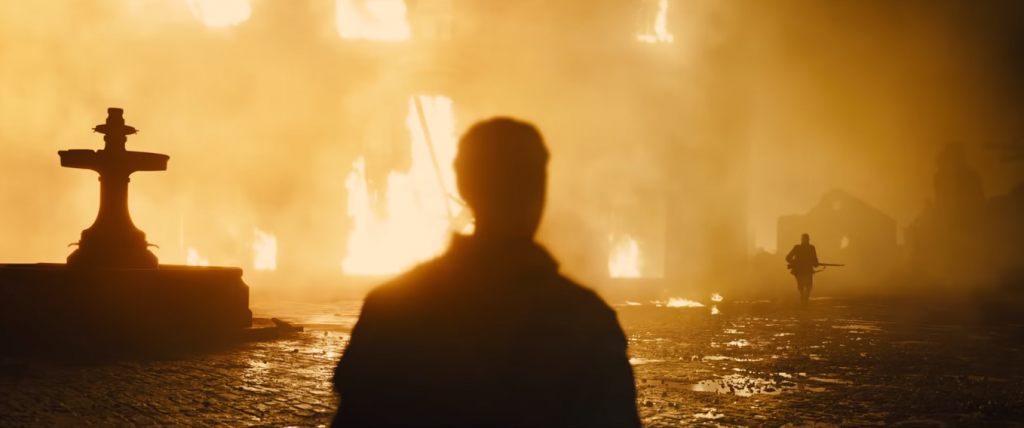 Distributed by Universal Pictures in the Philippines, 1917 is now screening in cinemas nationwide.
Distributed by Universal Pictures in the Philippines, 1917 is now screening in cinemas nationwide.
[youtube http://www.youtube.com/watch?v=YqNYrYUiMfg]


